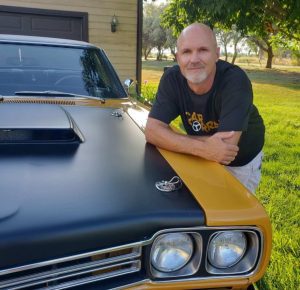The vehicle auction industry has grown significantly in recent years. Online platforms have emerged, offering a convenient way for buyers and sellers to meet. Despite the proliferation of these platforms, there are several reasons why there’s still a strong need for another vehicle auction platform to enter the market. We explore why a new platform could help both consumers and businesses, and how it could innovate the vehicle auction space.
Fragmentation of the Market
The vehicle auction market is highly fragmented, with many players in the space offering different services, features, and user experiences. While this has been beneficial in providing a range of options for buyers and sellers, it has also made it difficult for users to know where to go for the best deals or most efficient experience. A new platform could consolidate the best features of existing services and offer a more seamless, user-friendly experience that meets the needs of a variety of market segments, from private sellers to car dealerships.
Improving Vehicle Auction Transparency and Trust
One of the biggest challenges in the vehicle auction market is the lack of transparency. This leads to mistrust among buyers and sellers. Often, bidders don’t have access to comprehensive vehicle histories. Or, bidders aren’t able to inspect the cars they’re bidding on in person. A new platform could address these concerns by offering better transparency. This includes no hidden fees and real customer service interaction. A new platform that encourages accountability for both sellers and buyers is essential. This would ensure that sellers are accurately representing their vehicles. And also, that sellers are ready to complete the transaction in a timely manner should they have the winning bid.
Expanding Niche Markets
Many existing vehicle auction platforms tend to focus on either luxury or high-dollar vehicles. There is an opportunity for a new auction platform to specialize in a particular niche, such as electric vehicles, classic cars, or even an everyday driver. This would allow buyers and sellers within those niche markets to come together in a space that better caters to their specific needs, making it easier to find the right buyers and sellers for all vehicles.
Innovative Technology and Features
The automotive industry is quickly evolving, and vehicle auction platforms need to keep up with these changes. A new platform could integrate innovative technologies such as proxy bidding, choices for how long the auction will run, and letting the customer decide what their reserve will be. These innovations could improve the auction experience, making it more efficient, reliable, and attractive to new users.
Enhanced User Experience
Many existing vehicle auction platforms focus on catering to one type of user: the seasoned bidder, the dealer, or the wealthy. A new platform could focus on providing a better, more inclusive experience for everyone, from first-time users to seasoned professionals. This could include educational resources for new buyers and sellers, personalized bidding notifications, and an overall smoother experience from start to finish.
Global Reach and Accessibility
As the world becomes increasingly connected, there is a greater demand for a vehicle auction platform that operates across borders and makes vehicle buying and selling more accessible to international buyers. By doing so, it could help individuals and businesses take advantage of global market opportunities, providing access to vehicles that may not be available locally. The logistics of shipping a car internationally has also become easier today compared to years ago.
Competitive Pricing and Lower Fees
Current vehicle auction platforms often charge hefty fees to both buyers and sellers. These fees can eat into profits and may deter some potential users from engaging with the auction process. A new platform could disrupt the market by offering lower fees and more competitive pricing structures. When a new platform is acting in the best interest of their customers, fewer hurdles to sell or buy is key.
Assessing lower fees does not mean that the platform is not of quality. It simply means that the platform is acting in the best interest of its customers. Just like the customers, the platform’s owners are true enthusiasts looking to provide a better option. By keeping fees down, it would encourage more participation, which in turn would drive more transactions, benefiting everyone involved.
Specialized Vehicle Auction Services for Sellers
Sellers often face significant challenges when auctioning vehicles. They may need to list numerous cars at once or deal with high transaction costs. A new platform could specialize in providing services for dealers, including bulk listing options. Additionally, an easy-to-navigate dashboard could help sellers track their auctions, monitor bids, and optimize their sales strategies. This makes the selling process more efficient and profitable.
Adapting to the Digital Era
The automotive market is rapidly moving toward digital transactions, with online platforms becoming more important than ever. The COVID-19 pandemic accelerated this trend, and buyers and sellers increasingly prefer to conduct transactions online rather than in person. A new vehicle auction platform could cater specifically to this growing demand. Creating a platform that is designed for digital-first users would target a growing customer base. While there’s a preference for digital business, it’s still imperative that the platforms implement transparency and accountability to earn and retain the trust of buyers and sellers.
Conclusion
The vehicle auction industry is ripe for innovation. There’s plenty of room for another platform that can meet the needs of today’s evolving market. By offering transparency, better technology, and an improved user experience, a new platform could disrupt the status quo and create a more efficient, competitive, and accessible marketplace for vehicles. Whether it’s expanding into niche markets, or improving global accessibility, the next vehicle auction platform could very well be the catalyst for the next wave of automotive commerce.
By Jim Ochs

